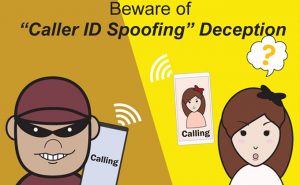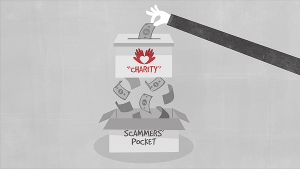Caller ID spoofing is when a caller gives false information that will show up on your caller ID. The tactic is to hide their identity. Although it’s not illegal to use alternate information as a Caller ID, most people use it deceptively, trying to make you believe that the number belongs to someone else. They may also want to make the number untraceable. Scammers frequently use this tactic.
Legal Spoofing
Business professionals have used spoofing for many years, but with good reason. A company may use spoofing so that calls from anyone inside the company reflect the business’ main phone number. Doctors often use spoofing to conceal their personal numbers and replace them with the main office number. The call is recognized by the patient and also maintains the privacy of the doctor. Law enforcement agencies can also use caller ID spoofing.
Illegal Spoofing
Illegal spoofing is using a false number to trick a target into answering the phone. Consumers are savvy these days, so fooling them isn’t easy. However, if a scammer wants you to think he is calling from a well-known company like Microsoft, he can spoof the company’s main number. The target will answer the call and may be fooled if the caller claims to be from Microsoft’s tech support or billing department.
The Truth in Caller ID Act of 2009 bans anyone from using false or misleading caller ID information “with the intent to defraud, cause harm, or wrongfully obtain anything of value.” Anyone caught illegally spoofing can get a fine of up to $10,000 for each offense. The fines do not stop most scammers as they are usually untraceable.
Neighbor Spoofing
Scammers use fake numbers in the region. They target people who may think the call is from a neighbor. They use a local exchange and may mirror a number close to your own. For example, if your number is 910-553-8762, the scammer might use 910-553-0371 or 910-553-8754. Phone numbers that appear to be local are more likely to be answered by the target. Most people don’t answer unknown numbers, but if the number appears local, the target may think it’s a call from their child’s school, the local pharmacy, or a call from a neighbor in need. If you see a number you don’t recognize but could be important, you can use a white pages iPhone app to investigate before taking the call. You can return legitimate calls right away. The Federal Communications Commission has a plan to stop neighbor spoofing, urging the phone industry to use a strong caller ID authentication system.
Avoiding Spoofing Scams
You can use several techniques to avoid spoofing scams. Don’t answer calls from unknown phone numbers. If you answer the call, do not respond to any questions, especially if they are “yes” or “no” answers. If an automated system asks you to press a button to opt out of calls, do not press the button – simply hang up. You should also hang up the phone if the caller asks for any personal information.



